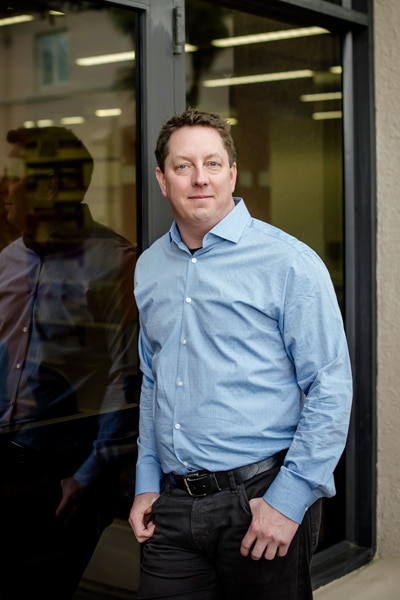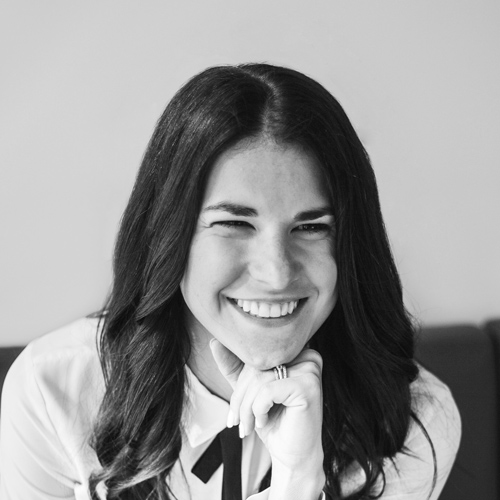
Across his accomplished career, Scott Shipman has crossed borders both literal and theoretical. His work has taken him from massive corporations to start-ups and back again. He’s traversed many of the corners of the business world and developed a bird’s eye view of the biggest concerns in privacy, information security, data strategy, and intellectual property. And yet, Shipman’s latest challenge finds him working on a new project that achieves much of that same oversight: smart communities.
In his previous role as the chief privacy officer and general counsel at Sensity, Shipman was leading the organization’s work toward a smarter, more interconnected city. Sensity Systems has since been acquired by Verizon, but his career path started as far back as his time in law school.
At the Santa Clara University School of Law, Shipman focused on high-tech law and spent a summer in Tokyo at the Institute for Comparative Law while working with Honda on intellectual property licensing agreements. It was a great start to his technology-focused career. “I was accepted as a contributing member of the legal department at a very early stage in my career,” he says. “It provided me with a lot of confidence, skills, and a passion for intellectual property and technology.”
When the dot-com boom and a seventy-person start-up called AuctionWeb came calling, Shipman decided it was worth a risk to join a start-up right out of law school. Fortunately, that start-up would become eBay. Thanks to the confidence earned at Honda, he was able to transition easily to the more wide-open environment of a start-up. He was also drawn to the company’s culture and mission, where individuals could drive their own success by working as eBay sellers.
Because of that connection, he stayed at eBay for more than sixteen years, helping build the legal department from the ground up. During his tenure, eBay’s global portfolio of companies included more than forty brands such as PayPal, Skype, and StubHub.
In the process, the then-burgeoning fields of privacy and data protection and information security led Shipman to build eBay’s privacy program and become the chief privacy officer, testifying in Congress and meeting with data protection officers and governmental agencies around the world to help shape the field. Shipman led the privacy incident response team through eBay’s data incident in 2014, working closely with regulators and law enforcement to ensure they were kept abreast of the latest developments. Ultimately, eBay’s quick response and focus on communication with customers and regulators successfully mitigated the incident with minimal impact. But when a new, equally exciting challenge came up, Shipman was excited to take the leap. “I got a call from a recruiter who said that this company was working in a brand new area, much like where privacy was seventeen years ago,” he says.
Not only that, but the company needed a general counsel and chief privacy officer. That company, Sensity Systems Inc., was making remarkable strides in the Internet of Things and smart city infrastructure. As such, privacy and data would be key. Both sides saw the potential in the fit, and Shipman came on board.
The company aims to help governments and residents understand their cities through sensor technology. The sensors put the information into a cloud platform, which allows users to check in on topics such as traffic patterns, fatal pedestrian accidents, parking availability, and more. “As an example, two video sensors can recognize if a car is parked on the street or if there is an empty space and then connect that information to an application on your phone in real-time,” Shipman explains. “We’re bringing the tools to cities to fundamentally change people’s lives.”
With world-changing events, Sensity’s vision garnered greater interest from cities globally. Working with Copenhagen, Adelaide, Bangalore, Kansas City, and more, Sensity had the largest number of pilots in the 150 tracked The National Institute of Standards and Technology (NIST) projects in 2016. Those initiatives led to Sensity being recognized as a Technology Pioneer by the World Economic Forum. The potential of sharing all the information from those governments—from permit requests to records of crime patterns—could lead to fascinating insights. Of course, all the benefits need to be balanced with the responsibility of making it available in a safe way, respecting personal information and citizen privacy.
As general counsel for Verizon Smart Communities, Shipman works with a team of engineers that develop the technology and enable privacy-by-design. They’ve thought through the potential danger of sharing private information and the concerns of constant surveillance. To that latter concern, he’s quick to note that the technology Verizon relies on is sensors, not cameras. “Our video sensor is the same technology used in self-driving cars: computer vision. It has the ability to analyze the scene below it, detecting objects without recording the scene,” he explains.
“We’re bringing the tools to cities to fundamentally change people’s lives.”
Scott Shipman
Depending on the agreement with each city, recordings from those sensors could be saved for some time to make potential evidence from crimes available and then recorded over. “The whole concept depends on working with the city to determine what you want, how long you want it, and focusing on not keeping anything unless necessary,” Shipman says. “That’s where privacy, information security, open data, privacy-by-design, and other principles come together to minimize the emotional impact. Nobody wants to walk around a city feeling like they’re being recorded and watched.”
Shipman and his team have worked to strike that balance on dozens of pilot projects with cities hoping to create applications that consumers can download to use that shared information. These deployments are only in the planning and initial deployment phases, but they’re progressing quickly. In addition to apps, the company wants to engage with residents through smart city kiosks with interactive touch screens that offer information on the area, potentially including free Wi-Fi, remote city services, emergency safety stations, and other content.
The burgeoning industry continues to offer new growth opportunities for Shipman. “Smart communities is a whole new industry, and we need to create rules of the road,” he says. “We’re devising the best practices for cities so people feel comfortable purchasing these solutions.” In order to get here, Shipman had to learn how to understand state-of-the-art technology such as computer vision and AI, as well as build a new policy paradigm, similar to what he did at eBay.
As if these challenges don’t keep him busy enough, Shipman makes education and developing new start-ups a part of his daily life. He built the first of its kind privacy certificate program at Santa Clara University School of Law, where he teaches international and comparative privacy law. He sits on a number of start-up boards as a director, guiding them through the legal and strategic process. His latest start-up is Square Panda, a promising educational tech start-up. “Starting at eBay, there was no way we could know whether dinosaur bones were legal or illegal to sell on the internet, but I learned how to learn. And when it comes to technology and the law, I have experience learning how to learn,” he explains. “Over the past twenty years, I have experience going into a new area and developing a thoughtful approach to implementing that technology.”
Every day, Shipman works to map out the unknown and show the world what those connections can mean for others.
Point of Disruption
Sensity Systems was founded in 2010 with the goal of changing the way that governments and residents look at their communities. In 2016, Verizon acquired Sensity because of its work to create smart cities. The company plans to convert public lights to LED lighting—which the company says will affect four billion lights worldwide—to create a high-speed, sensor-based, open-networking platform known as a Light Sensory Network. This network will disrupt the ways in which governments provide applications and services such as public safety, environmental and weather monitoring, parking management, and location analytics.
We thoroughly enjoy working alongside Scott on a variety of projects with Verizon. We value collaborating with someone with such integrity and who truly enjoys the challenges of law. Scott is a dedicated lawyer who passionately cares about building world class legal and privacy functions within Verizon.
Photo: Joanne H. Lee/Santa Clara University

